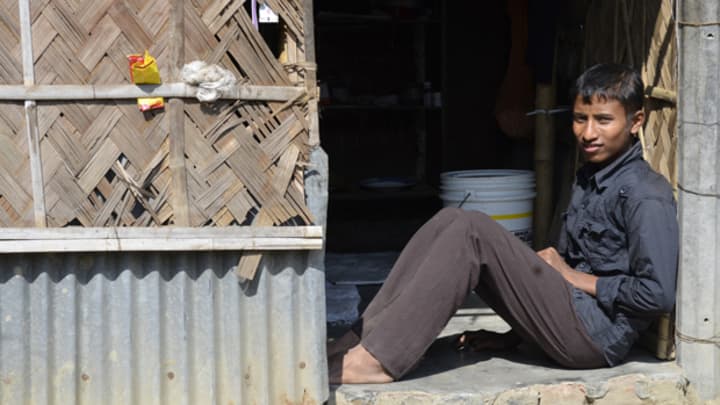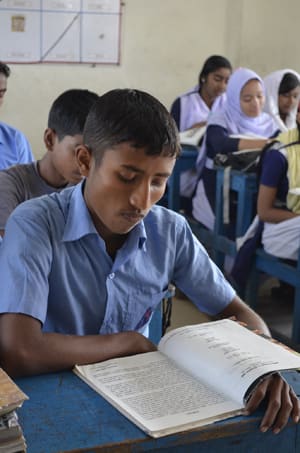
When Ashraful decided he wanted a better education, he didn’t realize that it would drive him away from his family and lead him to a life on the streets, selling newspapers for a pittance just to get by.
Ashraful knew what he wanted in life — a better education. And for the then 14-year-old, that opportunity lay in the busy metropolis of Dhaka, the capital of Bangladesh.
Filled with hope and determination, Ashraful left his family and the village he’d known his whole life and went to live with his brother and sister-in-law in the capital. After pitching up in Dhaka, he soon realized his dream wasn’t as clear cut as he had hoped. His brother and sister-in-law were not prepared to support him, and they refused to pay for his school fees.
Yet the teenager was so eager to go to school and gain a better education that he decided to take to the streets, undeterred and unaware of the perilous consequences.
That’s when Ashraful went from a young boy in search of an education to one of Bangladesh’s estimated 680,000 “street children.”
“Life on the streets was full of uncertainties,” recalls Ashraful. “Everyone tried to exploit me — the police, older children, snatchers — everyone.”
He was homeless for a year and a half, and worked 12 hours every day. He would fit his 3 hours of school classes around his work as a newspaper seller, where he was paid a bit over half a dollar a day. The long, gruelling days started at sunrise and went on late into the night, leaving Ashraful with just a few hours to rest.
Open to exploitation
City life was a dangerous situation for a young boy to find himself in, and it meant Ashraful was open to abuse and exploitation, much like the many other street children in Bangladesh.
He was not always paid by his employers, and the police would sometimes take away the little money he had worked hard to earn.
“Due to the harsh reality of city life, the well-being of children is often sacrificed and leaves them vulnerable to abandonment and abuse,” says Abdul Mannan, program unit manager for Plan in Dhaka. “Extreme poverty and lack of access to services deprive young children from appropriate care as well as a right to protection, shelter, education, health, nutrition, safe water and sanitation, and recreation. Many of them are economically exploited and exposed to high levels of occupational risk, often working under hazardous conditions for low wages.”

Finding a safe space
It was while he was at school that one of his teachers told Ashraful about a Plan-supported drop-in center in Dhaka, which offered safety and shelter.
With a safe place to sleep at night, he continued to work as a newspaper seller so he could continue his education. As he attended the day care center, Ashraful realized how dangerous his life on the streets had been, full of fear and uncertainty.
The teenager lived at the center for more than a year, but through Plan’s project for street children, he was eventually reunited and reintegrated with his family. Ashraful’s family moved to Dhaka so that they could all live together without his education being compromised. Now his home life is much better than living on the streets.
“Street life is not a life any child would ask for, but I had to accept it to continue my education. People have a stigma related to street children. We feel unwanted. No one cares if you manage to get your meal or not,” says Ashraful. “I have a father who cares for me and a mother who loves me unconditionally. I have siblings who hug me when I feel low. I feel protected. I feel happy. But every child who has lived on the streets is not so lucky. Many of them do not know or remember where their families are.”
Join the Devex community and access more in-depth analysis, breaking news and business advice — and a host of other services — on international development, humanitarian aid and global health.
